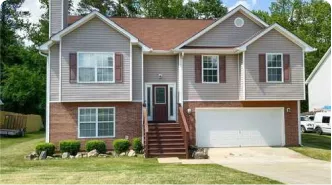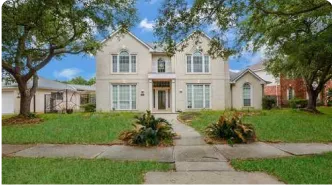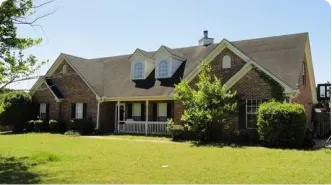Thinking about buying a property to list on Airbnb? You're not alone. Short-term rentals can bring in great income—if you buy the right one. But here’s the thing: not every cute listing with “investment potential” actually pays off. You’ve got to dig into the numbers, understand the local market, and run a real analysis—not just go with your gut or a Zillow estimate. Whether you’re eyeing a beach condo, a mountain cabin, or a city apartment, doing your homework up front can mean the difference between steady cash flow and a money pit.
In this guide, we’ll walk through exactly how to analyze Airbnb listings, compare comps, and estimate revenue—so you can invest with confidence.
Define Your Investment Goals
Before you start browsing listings or running numbers, take a step back and ask yourself: Why am I doing this? Are you looking for steady monthly income from short-term rentals, hoping for long-term appreciation, or aiming for a mix of both? Your answer will shape every decision that follows.
If cash flow is your top priority, you’ll want a property in a market with high occupancy rates and solid nightly rates. If appreciation matters more, focus on up-and-coming areas where values are likely to climb. And if you want both? You’ll need to find the sweet spot.
Also, set some financial benchmarks early—like the minimum cash-on-cash return you’re comfortable with or how much risk you’re willing to take. These targets will help you stay focused when the numbers start flying.
Conduct Thorough Market Research
Before you fall in love with a property, zoom out and look at the bigger picture—specifically, the market. A great Airbnb investment starts with choosing the right location. You’re looking for areas with steady demand from travelers and laws that actually allow short-term rentals (some cities are cracking down hard, so don’t skip this step).
Start by checking out cities or neighborhoods with attractions that draw consistent crowds—think beaches, national parks, ski resorts, college towns, or business hubs. Then dig into the data. Tools like AirDNA, Mashvisor, and Rabbu are game changers. They let you look at things like average daily rates (ADR), occupancy rates, and how income fluctuates by season.
The goal? Find markets where hosts are consistently making good money—and where you're allowed to do the same.
Evaluate Comparable Listings (Comps)
Before you get too excited about a property, take a look at what similar Airbnb rentals in the area are actually doing. This is where comps—short for comparable listings—come in. You're basically asking, “How are properties like this one performing?”
Look for Airbnbs that match the one you're considering in size, number of bedrooms, amenities, and vibe. Are they in the same neighborhood or close by? Do they have a hot tub, a view, a modern kitchen? All of that matters.
Then, pay attention to their occupancy rates, pricing, and reviews. Are they booked solid on weekends? Charging premium rates during high season? If you see a pattern of strong performance from similar properties, that’s a good sign you’re on the right track.
This step is all about setting realistic expectations for what your property could earn.
Estimate Potential Revenue Accurately
Let’s be honest—guessing how much an Airbnb property will make just isn’t enough. You need real data. That’s where tools like AirDNA’s Rentalizer, BNB Calc, and Airbtics come in. These platforms crunch numbers based on actual short-term rental data in your target area, giving you a much clearer picture of what kind of income you can expect.
But don’t stop at the first number you see. Be sure to factor in things like seasonality (are bookings strong year-round or just during peak months?), local events (is there a festival or sports season that boosts demand?), and property-specific details (like having a hot tub or being walkable to restaurants). These can all shift your income up or down—sometimes significantly.
Use the tools, but add context. That’s how you get a revenue estimate you can actually trust.
Calculate All Associated Expenses
Before you get too excited about potential profits, it’s time to get real about expenses. Airbnb income can look great on paper—until you forget to factor in everything it takes to run a short-term rental.
Start with the obvious: mortgage payments, property taxes, and insurance. Then layer in monthly bills like electricity, water, internet, and maybe even trash service. You’ll also want to budget for routine maintenance—because things will break—and cleaning costs between guest stays (especially if you're paying a service).
Don’t forget Airbnb’s platform fees either—they’ll take a cut of each booking.
And finally, there are those upfront costs: furniture, kitchenware, linens, maybe even a fresh coat of paint or a bathroom upgrade. These can add up quickly, so it’s better to overestimate than be caught off guard.
Bottom line: Know your numbers before you buy.
Perform Financial Analysis Using Key Metrics
Once you’ve got a property in mind and some revenue estimates, it’s time to crunch the numbers. This is where real estate math meets common sense—and it’s not as intimidating as it sounds. A few key metrics will give you a clearer picture of whether the deal actually makes financial sense.
Start with cash-on-cash return—that’s your annual profit compared to how much cash you put into the deal (down payment, closing costs, furnishing, etc.). It tells you what kind of return you’re getting on your actual investment, not just the property’s total value.
Next, look at the cap rate, which compares the property’s net income to its purchase price. It's a quick way to see if the returns are worth the price tag.
And don’t forget NOI (Net Operating Income)—basically your rental income minus expenses (but not mortgage payments).
There are plenty of free spreadsheet templates and online calculators that can help you run different scenarios. Plug in some best-case and worst-case numbers so you can see how things shake out if occupancy drops or expenses go up. It's better to know now than be surprised later.
Review Local Regulations and Legal Requirements
Before you fall in love with a potential Airbnb property, hit pause and check the local rules. Cities and counties all over the map are tightening regulations on short-term rentals—and what’s allowed in one neighborhood might be totally banned just a few blocks away.
You’ll want to dig into things like:
- Do you need a special license or permit?
- Are there zoning laws that limit short-term rentals?
- What taxes will you owe—hotel tax, occupancy tax, or something else?
Don’t assume you’ll fly under the radar. Plenty of investors have learned the hard way that fines, complaints from neighbors, or forced shutdowns can kill your returns fast. Take the time to read up on the local laws, or talk to a real estate attorney if you’re unsure. It’s not the fun part—but it’s critical.
Assess Property Management Options
When investing in an Airbnb property, one crucial decision is whether to manage it yourself or hire a professional property management company. Each option has its pros and cons, and your choice can significantly impact your profitability, time commitment, and guest experience.
Self-Managing Your Property
Taking the DIY route means you're in control. You handle everything from guest communication and bookings to cleaning and maintenance. This approach can save you management fees and give you a hands-on understanding of your property's operations. However, it also demands significant time and effort, especially if you're managing multiple properties or live far from the rental location.
Hiring a Professional Management Company
On the other hand, enlisting a professional property management company can alleviate the day-to-day responsibilities. Companies like Awning offer full-service vacation rental management, handling everything from marketing and guest communication to cleaning and maintenance. This allows you to enjoy passive income without the constant involvement.
Awning's services are designed to maximize your property's potential. They provide comprehensive management, ensuring your property is well-maintained and guests have a seamless experience. This can lead to better reviews, higher occupancy rates, and ultimately, increased revenue.
Make an Informed Investment Decision
Once you’ve crunched the numbers, compared comps, and reviewed all the data, take a step back and ask yourself: Does this property actually meet my goals? Maybe you’re aiming for strong monthly cash flow, or maybe you’re in it for long-term appreciation. Either way, make sure the numbers—and the location—line up with your strategy.
It’s also smart to think about the what ifs. What if bookings slow down in the off-season? What if the city tightens its short-term rental rules? What if repairs cost more than expected? None of these should scare you off—but having a backup plan (like switching to long-term rental or setting aside a repair fund) can save you a lot of stress down the road.
Bottom line: the best Airbnb investors don’t just hope for the best—they prepare for it.
.svg)













%201.webp)
%203.webp)



%201.webp)
.webp)


